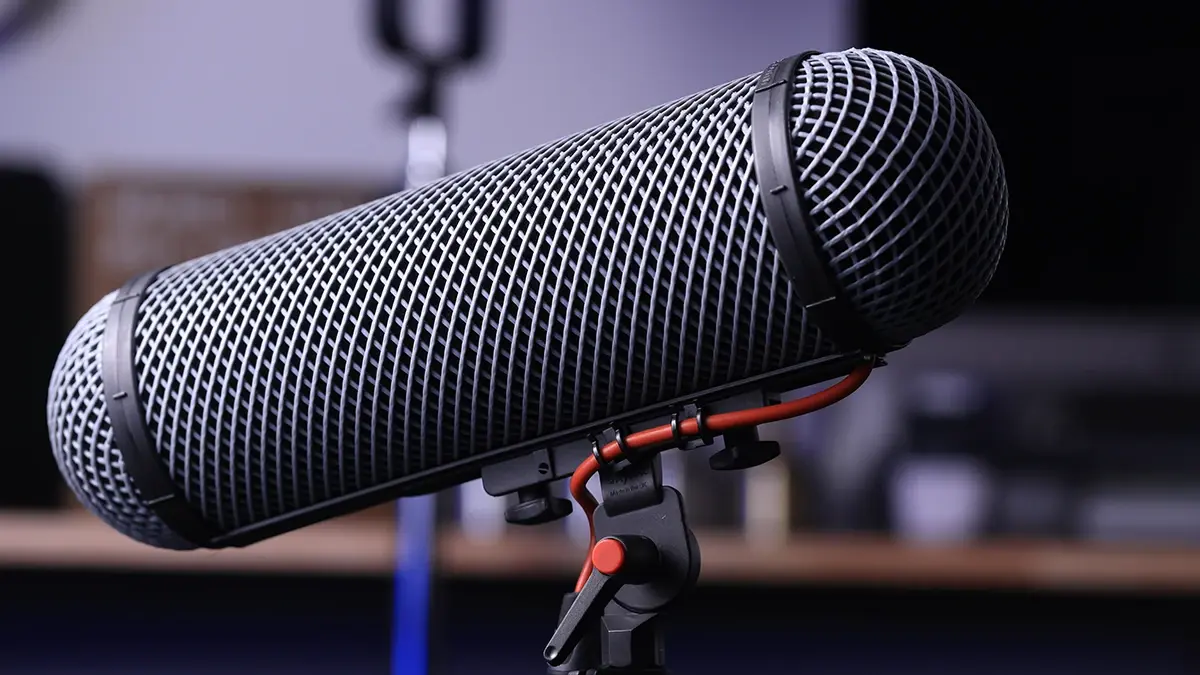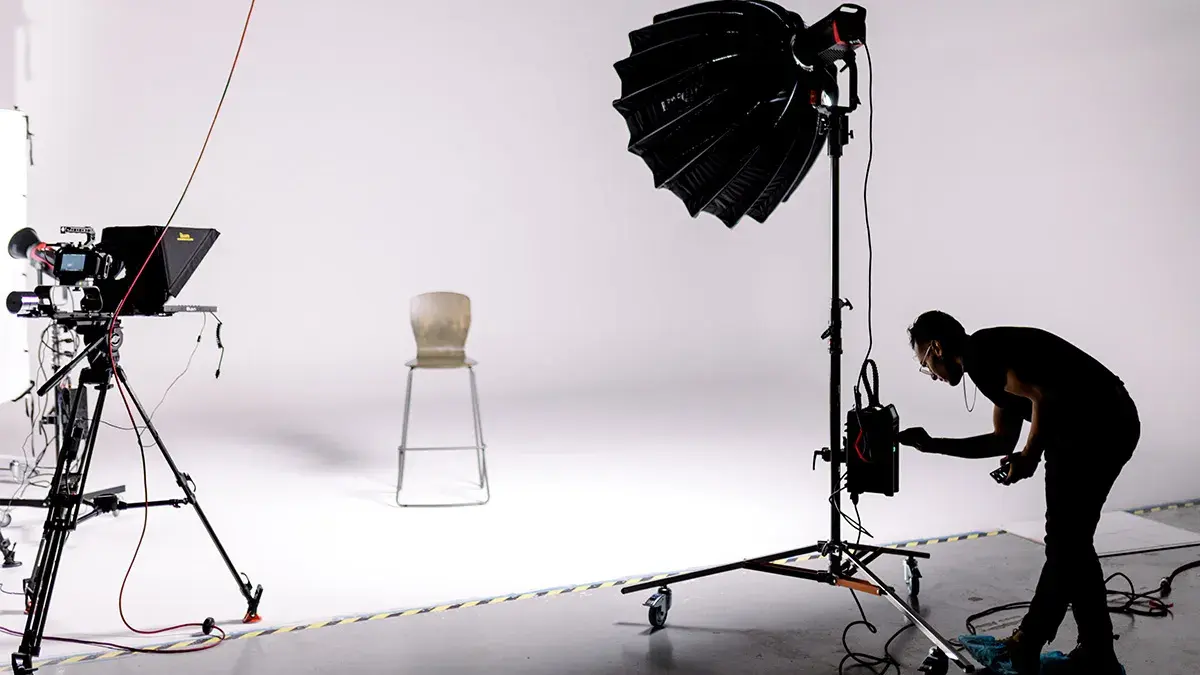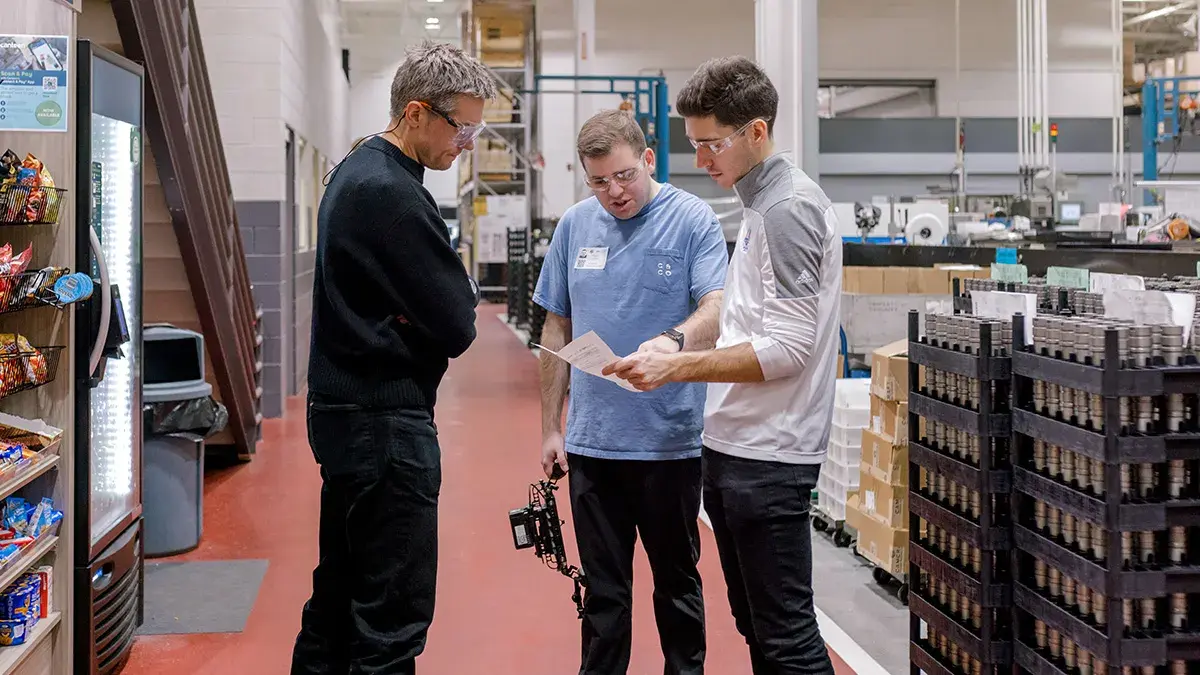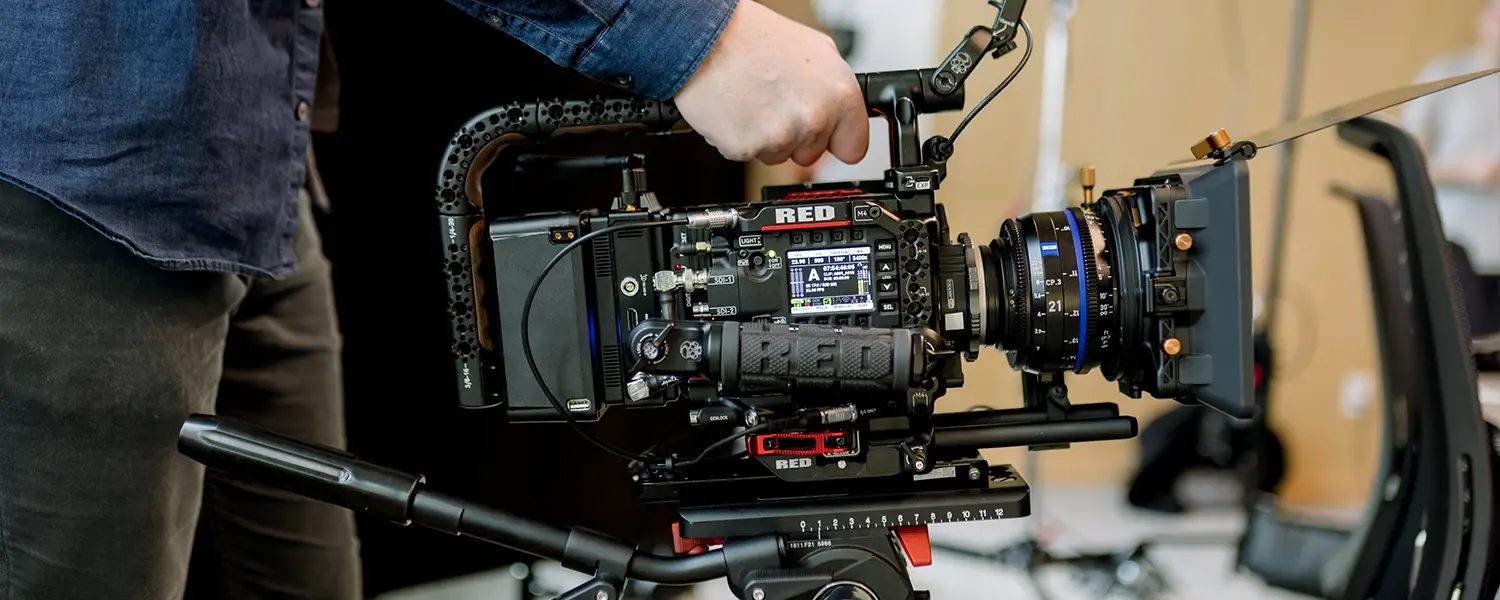Essential Film Equipment You'll Need for Business Videos
High-quality videos can capture unique sights and angle your brand in a way that captivates your target audience. However, there's typically a lot...
Everything Video Marketing→
Video marketing: What it is, why it matters, and how to do it.
Everything Video Production→
Your ultimate guide to video production: Tips and tricks for creating masterful videos.
Blog→
Helpful resources for all of your video production and marketing needs.

Music and sound effects can bring your video content to the next level. However, you can't just add "Free Bird" or "HOT TO GO!" to your video and expect it to be smooth sailing.
Music licensing is crucial to any type of project, whether you're live streaming, advertising, or growing your audience. So, before you get too attached to any particular song, you must learn the different types of music licenses and how to obtain them.
Copyright law protects artists, publishers, and others in the music industry in many ways. Specific songs' rights are generally separated into two distinct categories, meaning you may have to work with multiple copyright holders.
The two levels of music copyright are:
Understanding the distinctions between different types of music licensing is crucial for video projects. Misusing someone else's work can result in legal consequences and your content being removed from many platforms.
Even if you've obtained one type of music license, you may still be unable to do everything you want. Additionally, just because a song's composition is public domain doesn't mean any audio recording you find counts as "license-free music." You still must go through the music's publisher to use that track.
Navigating licensing in music can be challenging, but it's essential to know what you can and can't use certain music for. Fortunately, there are often easier alternatives, such as creating your own audio or investing in royalty-free music.
Some projects may only require one license — typically, a synchronization license. Others may require specialized licenses or a combination of multiple options. For example, if you plan on using a specific song in a video and a live stream, you'll likely need sync, performance, and master-use licenses.
Since each license differs so much, it's important to understand what legal rights you need for your marketing video production before moving forward. Check out the most common music licensing options below.
"Syncs" are among the most common music licenses for video projects, though their terms can vary drastically. These standard copyright agreements often allow free use of a piece of music, including its composition and recording. However, you may be restricted to particular song sections and specific aspects of your project.
Furthermore, many sync licenses only give you rights to the composition. In these cases, you have to produce or acquire the rights to a cover of the song rather than use the original track. These syncs are typically much more affordable than the licenses that include the studio recording.
Most sync licenses require you to pay the rights holder royalties if the project makes a profit. For example, if you monetize your YouTube videos, you will regularly have to pay for that specific video's success.
Mechanical licenses let you use music in audio formats. In some cases, this only gives you rights to the composition, which is perfect if you want to release a cover track. Other mechanical licenses include both the composition and studio track. These options typically let you alter and remix the music as you like, such as by adding a "workout" beat behind the track.
Beyond the increased creative freedom, the key difference between mechanical and sync licenses is their release format. Most video projects only need syncs, while podcasts, cover albums, and other audio projects need mechanical licenses. However, some projects may need both, such as podcasts that are released in both video and audio formats.
These music licenses let you use music in "public," which can cover various types of settings and performances. You may need a performance license when:
Like syncs, most public performance licenses also include royalties. These royalties can be pricy compared to other licenses, depending on how frequently you play the music. In most cases, it's more affordable to use royalty-free audio for your public background music.
A master-use license gives you permission to use a particular song recording, typically with fewer restraints than sync and mechanical licenses. The copyright owner — like the artist or record label — must approve these licenses directly.
Depending on the copyright holders, you may need to obtain both a sync and master-use license separately to use a song. The sync would cover the musical composition, while the master use would cover the sound recordings. This is especially common when using a popular cover of a separate artist's song, such as Elvis Presley's cover of "Hound Dog."
When working with a single music publisher, you may be able to choose between sync and master-use licenses. Depending on your goals, master-use licenses can generally be specialized for particular projects. For example, you'll likely need a master-use license if you plan to use the same song in every video intro.
Royalty-free music is still copyrighted, meaning you still have to pay for a music license. Unlike standard licenses, you won't have to pay the copyright holder for your project's profits or repeated use.
Royalty-free music libraries let you access various audio recordings, including music and sound effects, for a flat fee. These tools are especially beneficial for background ambiance, saving you the hassle of navigating multiple royalty-based licenses.
Alternatively, you can consider songs with Creative Commons (CC) licenses. These are songs whose copyright owners have given permission for others to use their audio. However, you generally have to follow license-specific conditions, such as:
Writing your own music or hiring an artist to do it for you is always a great choice! Not only can you avoid many licensing issues, but you can also customize your music to fit your project.
Still, licensing and rights for commissioned music aren't always black and white. A commissioned work is generally owned by the employer or company who funded it, though many agreements let the artist retain most of the exclusive rights. The specifics will depend on the agreement you make with your artists.
There's no clear-cut way to get a music license. Your specific secrets to success will depend on the particular copyright holders and the types of licenses you need.
Follow these general steps for navigating music licensing:
Obtaining music licensing rights often comes with a number of fees. Depending on how you use the music, you may have to pay for separate licenses, including sync, performance, and commercial. And royalties can cost your project even more in the long term.
Of course, every music publisher is different, and not everyone charges flat fees. Some rights holders charge less for student films, charities, and other projects. Additionally, many royalty-free licenses let you use a variety of tracks after one single charge.
Misusing someone else's music or audio can have serious legal and financial consequences — especially if you use it commercially. For example, The Beastie Boys recently sued a major restaurant chain for $150,000 for allegedly using their song without permission.
Beyond the legal risks, using music without a license can lead to your content being removed from most social media platforms. In many cases, your videos may be muted or quickly taken down, but frequent strikes against your account can result in more severe action.
Fair use can only get you so far. For example, if a passing car plays a popular song in your live stream, you don't have to worry about getting sued. However, it might become an issue if unlicensed music plays throughout your entire stream.
One of the best strategies for avoiding copyright infringement is to work with professionals who understand copyright law. At Charter & Co, our services range from pre-production through distribution. We have access to a vast library of music tracks and can help you find the best options in your budget.
Get in touch today to get your project moving.

High-quality videos can capture unique sights and angle your brand in a way that captivates your target audience. However, there's typically a lot...

Business video marketing requires high-quality visuals, audio, and content to grab viewers' attention, especially if you want to leave lasting...

Popular internet memes regularly joke about what is and isn't considered "cinema" — but what is "cinematic video," really?